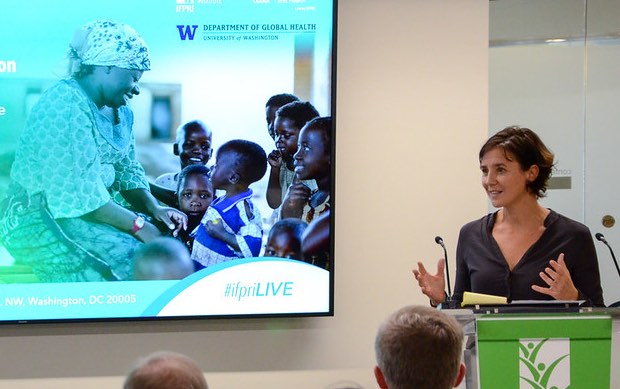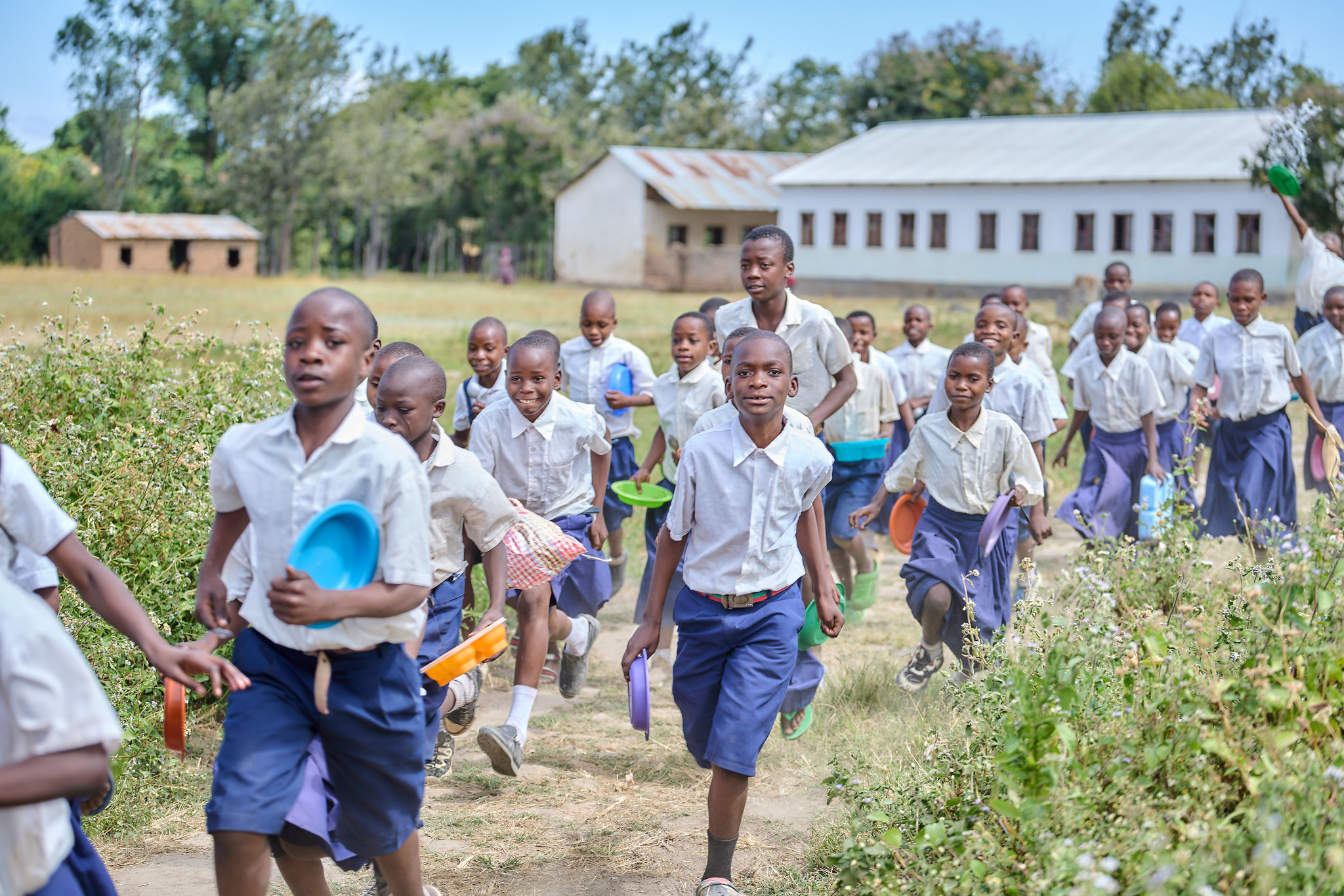Community-based early childhood development centers have long provided affordable, quality care for preschoolers across Malawi—but many of those communities also face chronic poverty and food insecurity. Recently, Save the Children tested using the centers as a platform for a package of integrated agriculture and nutrition behavior change interventions. IFPRI and partners conducted a longitudinal cluster-randomized controlled trial examining the interventions’ impacts—and based on the results, the government scaled up the program.
A Nov. 6 policy seminar explored the research—the Nutrition Embedded Evaluation Programme Impact Evaluation (NEEP-IE)—that led to this unprecedented scale-up of an integrated agriculture-nutrition program. The event was co-organized by IFPRI, the University of Washington-led Strengthening Economic Evaluation for Multisectoral Strategies for Nutrition (SEEMS) project, and the CGIAR Research Program on Agriculture for Improved Nutrition and Health (A4NH), and moderated by IFPRI Poverty, Health, and Nutrition Division Deputy Director Dan Gilligan.
Aisha Twalibu, an IFPRI consultant formerly affiliated with Save the Children, gave an overview of the program. There are 12,000 early childhood development centers in Malawi, owned and managed by parents and community members. “The main challenge in these centers is a lack of food, and because of this lack of food, children are absent from school, which eventually leads to [centers] closing,” Twalibu said.
To address this challenge—by improving nutrition, agricultural production practices, and parenting skills—Save the Children developed its intervention package: Training around nutrition and feeding practices, village savings and loans, and biofortified seeds.
IFPRI, the University of Malawi, Save the Children, and the University of Washington evaluated the impacts and assessed whether they persisted one year after the intervention ended. The NEEP-IE study found marginally significant results in improved parenting practices, and significantly improved frequency and quality of preschool meals, agricultural production of nutritious foods, and diets of preschoolers and their siblings, lead author and IFPRI Research Fellow Aulo Gelli explained.
He pointed to an additional surprising finding. “We actually picked up an effect (18%) on linear growth of siblings, despite not seeing any change in growth in the preschoolers themselves,” Gelli noted, suggesting that the multiple program impacts may thus have combined to provide a protective environment for children, improving access to nutritious foods and the quality of diets. After the intervention ended, the study found that significant improvements in parenting practices were sustained, as was agricultural production of nutritious foods. Preschoolers’ growth also improved, catching up to their siblings’ improvements. Younger siblings who had benefited in terms of growth during the trial were found to have higher overall child development scores the following year.
The evaluation found that 16% of the costs of the activities were covered by households themselves, and that the program cost $39 per beneficiary to implement, said Amy Margolies, a research consultant for IFPRI. “Over 400 cases of stunting were averted, as well as 12 deaths,” she said. The benefit-cost ratio of the program is 5.7.
Based on these positive results, the government of Malawi decided to scale up the program with support from a World Bank investment of $50 million. A SEEMS case study found several enabling factors that led to that decision, including a strong partnership with implementing partners, community engagement, and a high quality base of evidence on impact and economic rationale, explained Mary D’Alimonte, a senior program officer at Results for Development.
“What was important in [the decision to scale up] was translating evidence for policy makers. There was a need to have this highly technical data and information translated … in an opportunistic way … into what speaks most strongly to policy makers,” she said.
Research-based evidence is crucial for convincing countries’ finance ministers to move forward on seeking World Bank funding to scale up a promising program, Bank nutrition specialist Julie Ruel Bergeron said. “You have an enabling environment and … rigorous evidence that is relevant for actual implementation. The combination of those factors is really what you need to be able to scale up these interventions to the level that we’re seeing now [in Malawi],” she said.
One of the main strengths of the program, according to Save the Children Senior Nutrition Advisor Natalie Roschnik, was that it identified the problem at the ground level, leading to a community-driven solution: Rather than providing food transfers, the program built up capacity within the communities to produce food themselves. “The program is also unique because it brings sectors that don’t normally work together [especially early childhood development] … this is a huge opportunity for us as an organization to try and replicate this approach to bring sectors together,” she said.
Communities can be powerful platforms to deliver multisectoral interventions, IFPRI Senior Research Fellow Harold Alderman said. “When you’ve got the community working together, it builds up social capital and it sets up the potential for doing more,” he said. The challenge, he said, is retaining a community’s social capital as a program is scaled up and administered from the top down. In addition, although the returns to early childhood development interventions are particularly high, he said, school feeding programs are almost never administered at the preschool level—highlighting the need for more research and interventions to achieve high impacts at this critical age.
Sivan Yosef is a Senior Program Manager in IFPRI’s Director General’s Office.







